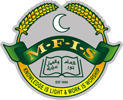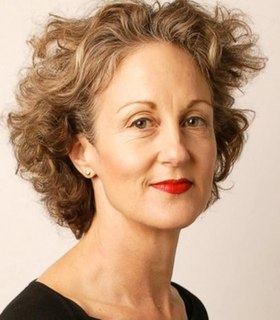
Hizb ut-Tahrir is an international pan-Islamist and fundamentalist political organization whose stated aim is the re-establishment of the Islamic caliphate to unite the Muslim community and implement sharia globally.

Islam in Australia is a minority religious affiliation. According to the 2021 Census in Australia, the combined number of people who self-identified as Muslims in Australia, from all forms of Islam, constituted 813,392 people, or 3.2% of the total Australian population.

Patrick Joseph McClure, AO chaired the Reference Group on Welfare Reform (2014-2015), advises governments on social policy, is a company director and a former chief executive officer of Mission Australia and the Society of St Vincent de Paul (NSW/ACT). He is chair of the Oak Tree Retirement Villages Group.

Malek Fahd Islamic School is a multi-campus independent Islamic co-educational primary and secondary day school, with its main campus located in the south-western Sydney suburb of Greenacre with smaller campuses in Hoxton Park and Beaumont Hills, New South Wales, Australia.
Randa Abdel-Fattah is an Australian writer. Randa was born in Australia and her debut novel, Does My Head Look Big in This?, was published in 2005.

Adrian Piccoli is a former Australian politician who represented the electoral district of Murray in the New South Wales Legislative Assembly from 2015 to 2017, and the district of Murrumbidgee from 1999 to 2015. He was the deputy leader of the Nationals in the New South Wales Parliament from 2008 to 2016. Piccoli served as the Minister for Education between April 2011 and January 2017, in both the O'Farrell and Baird ministries.

Mark Diesendorf is an Australian academic and environmentalist, known for his work in sustainable development and renewable energy. He currently teaches environmental studies at the University of New South Wales, Australia. He was formerly professor of environmental science and founding director of the Institute for Sustainable Futures at the University of Technology, Sydney and before that a principal research scientist with CSIRO, where he was involved in early research on integrating wind power into electricity grids. His most recent book is Sustainable Energy Solutions for Climate Change.

Decadence: The Meaninglessness of Modern Life is a six-part television documentary series commissioned by SBS Independent and produced by Fork Films. The series is hosted by Pria Viswalingam, who is best known for his work on the travel show A Fork in the Road. Decadence was originally broadcast on the Special Broadcasting Service (SBS) of Australia in 2006 in the form of six, thirty-minute-long episodes. It was re-screened again in 2007 as part of the SBS season on globalisation.

The Festival of Dangerous Ideas (FODI) is a disruptive festival that encourages debate and critical thinking, co-founded in 2009 by The Ethics Centre the Sydney Opera House.
Create NSW is a government agency of the Government of New South Wales, that falls within the Enterprise, Investment and Trade cluster. The agency was created on 1 April 2017 from an amalgamation of Arts NSW (ANSW) and Screen NSW. Create NSW is responsible for administering government policies that support the arts, artists and the various cultural bodies within the state of New South Wales in Australia, and for the provision of funding. It also provides secretarial and administrative support to the Arts & Culture Advisory Committee, a high-level committee which works with the government to help shape policy and promote the arts throughout the state.

Man Haron Monis was an Iranian-born refugee and Australian citizen who took hostages in a siege at the Lindt Chocolate Café at Martin Place, Sydney on 15 December 2014, lasting for 17 hours, until the early hours of the following morning. The siege resulted in the death of Monis and two hostages.

Dr Elizabeth Margaret Farrelly, is a Sydney-based author, architecture critic, essayist, columnist and speaker who was born in New Zealand but later became an Australian citizen. She has contributed to current debates about aesthetics and ethics; design, public art and architecture; urban and natural environments; society and politics, including criticism of the treatment of Julian Assange. Profiles of her have appeared in the New Zealand Architect, Urbis, The Australian Financial Review, the Australian Architectural Review, and Australian Geographic.

Hizb ut-Tahrir America is a separate, but linked entity to the international pan-Islamist and fundamentalist organization that seeks to establish a global caliphate governed under Shariah law. Under this caliphate, members work toward uniting all Islamic countries as well as transforming secular, host countries into Islamic states. Hizb ut-Tahrir America's goals are the same as the global organization – the installation and implementation of sharia law as the sole source of law.
The Q Society of Australia Inc. was a far-right, Islamophobic and homophobic organisation that opposed Muslim immigration and the presence of Muslims in Australian society. Q Society described itself as "Australia's leading Islam-critical organisation" and stated that its purpose was to fight against the "Islamisation of Australia". The Q Society was so named because it was founded at a meeting in the Melbourne suburb of Kew in 2010.

Islamic organisations in Australia include a wide range of groups and associations run and supported by the Islamic community in Australia. Organisations include major community councils, local organisations, mosques and schools. Most Australian Muslims are Sunni, with Shia then Sufi and Ahmadiyya as minorities.

Islamophobia in Australia is highly speculative and affective distrust and hostility towards Muslims, Islam, and those perceived as following the religion. This social aversion and bias is often facilitated and perpetuated in the media through the stereotyping of Muslims as violent and uncivilised. Various Australian politicians and political commentators have capitalised on these negative stereotypes and this has contributed to the marginalisation, discrimination and exclusion of the Muslim community.

Hizb ut-Tahrir is an international pan-Islamist and fundamentalist political organisation. The organisation is considered a "radical Islamic group" and has come under scrutiny from the Australian government.
Shiraz Maher is a British writer and analyst, and Director at the International Centre for the Study of Radicalisation and Political Violence (ICSR) at King's College London. He also teaches at Johns Hopkins University. The son of Pakistani immigrants, for several years after 9/11 Maher was a member of the Islamist organisation Hizb ut-Tahrir, but left the movement after the 2005 London bombings and became an outspoken critic of radical Islam. He has written for leading newspapers in Britain and elsewhere, produced reports and studies on counterterrorism strategy, and appeared in the international news media as a commentator on jihad and radicalisation.

Hizb ut-Tahrir Britain is the British branch of Hizb ut-Tahrir, a transnational, pan-Islamist and fundamentalist group that seeks to re-establish "the Islamic Khilafah (Caliphate)" as an Islamic "superstate" where Muslim-majority countries are unified and ruled under Islamic Shariah law, and which eventually expands globally to include non-Muslim states such as Britain.

Sue Knight is an Australian philosopher, educator and academic whose research focuses on teaching reasoning skills and embedding philosophy within school curricula. She is the author of the Primary Ethics curriculum, which has been offered as an alternative to Scripture in New South Wales public schools for students from Kindergarten to Year 6 since 2010.











